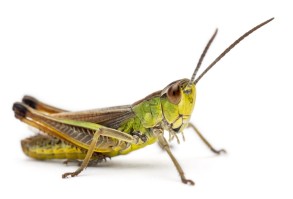Not many people are keen to get old.
There are some advantages to it. Wisdom, hopefully, though the number of daft old folk around reminds us it’s not guaranteed. And leisure: we can retire and wear our slippers all day if we want. We can spoil the grandchildren. We can get discounts on travel.
 But there’s no escaping the downside, as I myself (now aged 80) am discovering. The obvious one is health issues. While we oldies are hugely grateful for our medical services, we would prefer not to suffer those issues in the first place. We remember fondly the days of our youth, when we didn’t know the meaning of arthritis, prostate enlargement, gammy knees or heart problems.
But there’s no escaping the downside, as I myself (now aged 80) am discovering. The obvious one is health issues. While we oldies are hugely grateful for our medical services, we would prefer not to suffer those issues in the first place. We remember fondly the days of our youth, when we didn’t know the meaning of arthritis, prostate enlargement, gammy knees or heart problems.
Mental and emotional issues develop in old age, too. Some, like Alzheimer’s, are massive and intrusive, the elephant in the room. But others are more subtle. Speaking for myself, I’ve realised that what could be called my ‘coping capacity’ has reduced. Challenges that, not too long ago, I would have taken in my stride are more daunting now.
An example, you say? OK, take the grocery order from the supermarket. During the coronavirus lockdown, my wife and I took to ordering groceries online and having them delivered to the door. A real help. But on the second or third occasion, I somehow failed to confirm the order by the required date and, the day before delivery was due, we discovered it had been cancelled.
It wasn’t the end of the world. We had a well-stocked freezer, and a small local shop where we could get the basics if required (though at a higher price, and with face-masks and strict social distancing). But we were both amazed at how this setback shook us. Uncharacteristically, it rocked us both to our emotional foundations. Ridiculous, I know, but true.
As I thought about it afterwards, a phrase from the book of Ecclesiastes (chapter 12) came to mind that sums it up perfectly. The writer is describing old age in poetic language. He says, for instance, that in old age ‘the keepers of the house tremble’ (the legs grow weaker). ‘the grinders cease because they are few’ (dental issues), ‘those looking through the windows grow dim’ (poor eyesight)—and more. But the one that stood out for me was spot on for my ‘coping capacity’: ‘the grasshopper shall be a burden’ (verse 5).
I looked it up. Most modern versions translate it differently, applying it to difficulty in walking. But the underlying Hebrew is capable of ‘the grasshopper shall be a burden’, and the older versions, like the AV and RV, run with that.
It’s a marvellous expression. A grasshopper is no weight at all. It can hop onto your shoulder and you won’t even know it. But in old age it can feel more like a turkey sitting up there. That sums up my situation perfectly.
What can I do about it? As for prevention, not a lot. It’s an inescapable feature of my old age. So I have to focus on what to do when a heavy grasshopper jumps up there.
Not panic, obviously. Breathe a prayer: ‘Help me with this, please, Lord!’ Mentally step back from the situation to get it into better perspective. It isn’t, after all, a major disaster. My house hasn’t just been bombed and my loved ones slaughtered. I haven’t had a heart attack. It’s just a circumstantial grasshopper, and no sensible old chap is going to let that get him down, is he? Take stock of the situation and decide what practical steps I can take to move forward. Simple, really. But easier said than done when the turkey’s claws are biting into my shoulder and its weight is threatening to floor me.
All this I intend to keep doing. With the Lord’s help, cope I shall, until, as Ecclesiastes puts it, ‘the dust returns to the ground it came from, and the spirit returns to God who gave it’ (verse7).



 Posted by David Matthew
Posted by David Matthew 